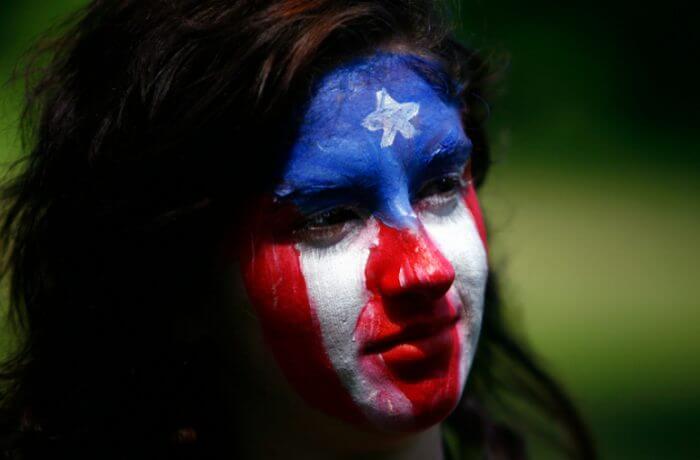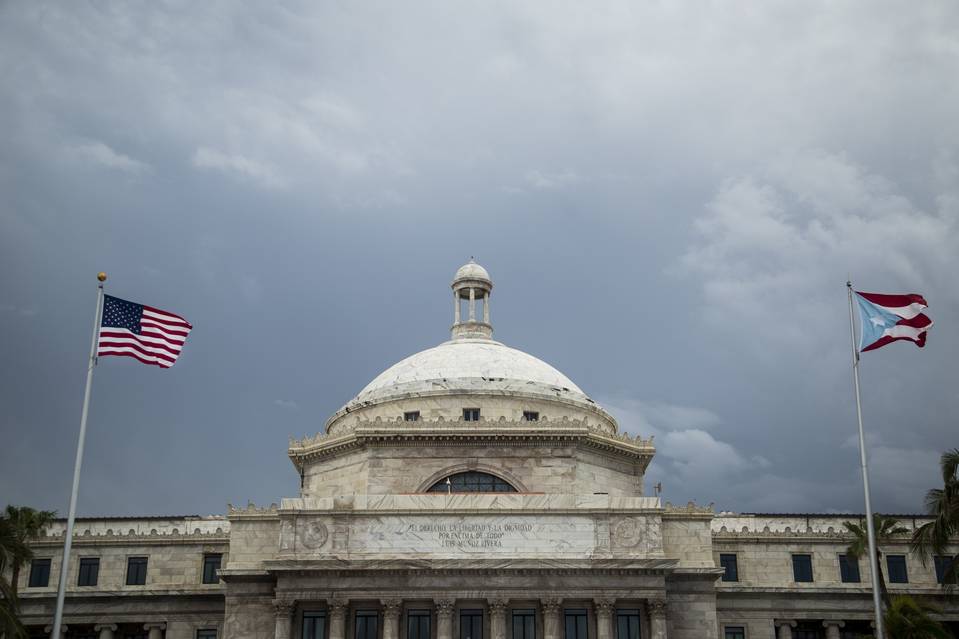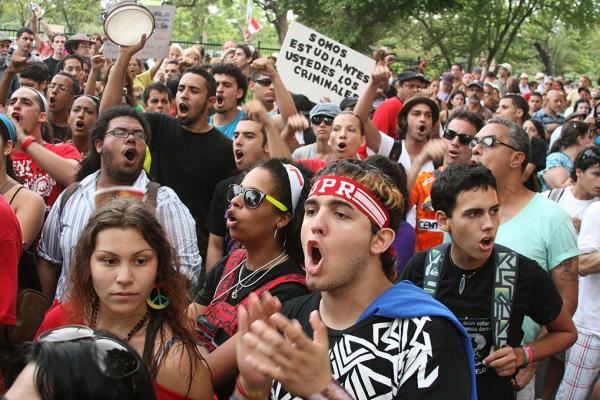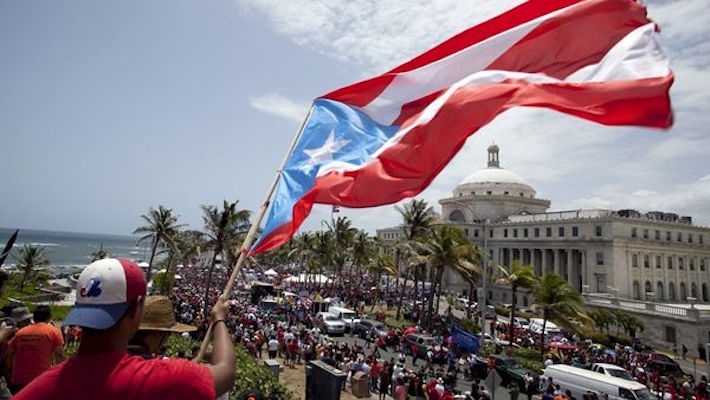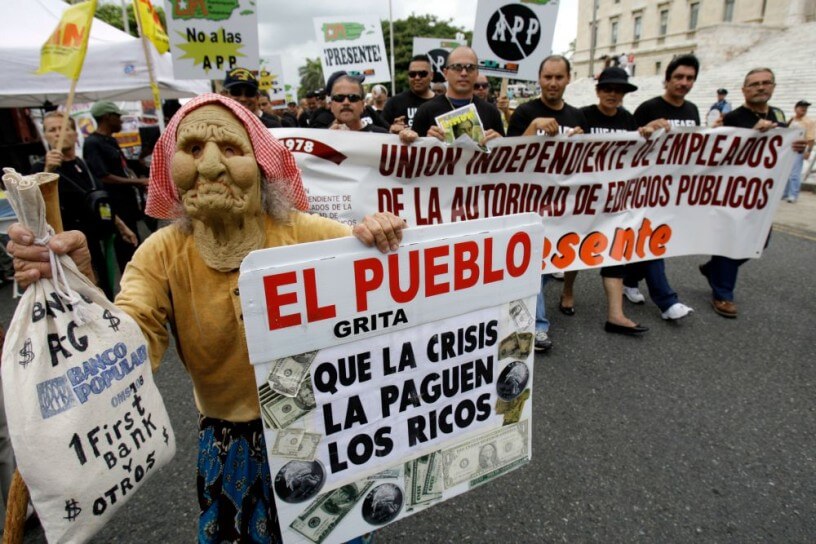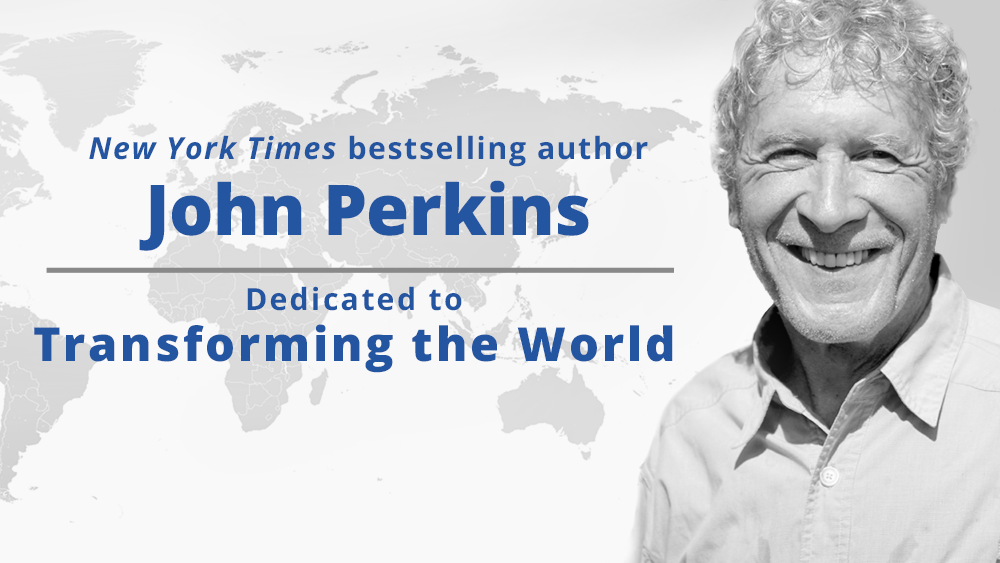By Nils Castro
Ten years of recession have made Puerto Rico’s government insolvent and made its economy collapse.
The problems of Puerto Rico started before the global crisis emerged in Wall Street and now it contributes to making the crisis public but also, much more serious.
Now, it is finally revealing the fiscal and economic failure of the colonial regime and it has caught the nation in a situation which appears impossible to solve.
At this point, among other consequences, we can find not only a decline in purchasing power and the string of layoffs, but also the highest emigration rate ever registered and the collapse of the country’s institutions.
Families have no social security and hospitals don’t have supplies. Only in 2005 more than 3000 doctors left the country. One effect of the collapse in the health area is the spread of zika which is currently threatening tourism, one of the few areas that are still profitable.
Puerto Rico has accumulated more than $72 billion in public debt, said the authorities. The debt was taken by the government to finance its activities more than a decade ago but has reached its credit limits.
Now the Congress of Washington is considering the creation of a Fiscal Control Board for five years, to restructure the debt and reorganize the country’s economy. The members of the Control Board would be appointed by the White House and their priority will be to guarantee the payment to the Wall Street bonds holders, even in detriment of the country’s social policies.
This board will have the faculty of approving budgets, laws and investments in infrastructure, it will work as a superior entity, above to the Puerto Rican Government, its decisions and its opinions. This means the direct intervention of Washington in the Puerto Rican government.
The constitution of a board proves that the Commonwealth of Puerto Rico is a fraud and shows the relationship it has with the U.S. government.
As Ruben Berrios said, while the US was interested in strengthening the dependence of this colony through loans, the Commonwealth prevailed. But now the U.S. priority is to collect those loans.
Now, the traditional leaders and candidates of the Popular Democratic Party (PPD) attack the Board. The same is done by the candidate of the New Progressive Party (PNP), who wants Puerto Rico to become a State of the US.
Both of them consider the Board to be an obstacle, the first because it turns the Puerto Rican government into a puppet, and the second sees it as a deflection that may put off their purpose of being part of the American Union.
Members of the Popular Democratic Party (PPD) were disappointed with Washington because instead of helping them improve their financial situation, they intend to bring calm and comfort to their lenders.
Regardless whether the people vote in favour of annexing the country to the US, there is no government or Congress in Washington that could accept a bankrupted Latin island in its Union. That is not an option which depends on voters: neither in Puerto Rico, Mexico nor any other country. On the other hand, what the PNP wants, to become a state in the American Nation, is far from the U.S will.
The cause of the problem is not the Board but the colonial system, said Berrios. We need to reject the Board but that won’t be enough, he added. The point is that the Commonwealth of Puerto Rico went from comedy to tragedy, and today, it’s no longer a viable option.
The only alternative is to reach a process that can guide Puerto Rico to be an independent, sovereign, and sustainable Nation. Moreover, this option is in total consonance with the interests of the US: in fact, it might help Washington solve one of its current problems.
